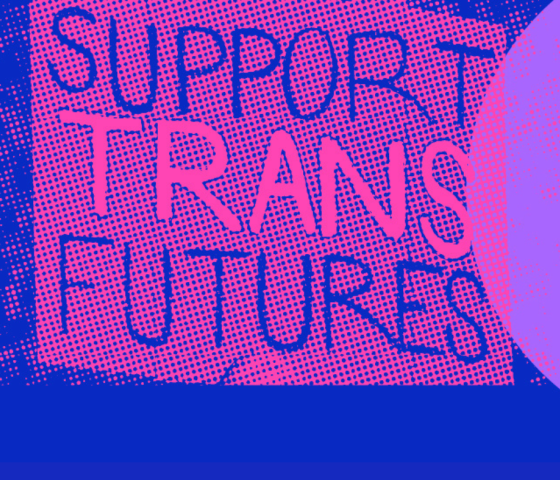Coming Soon
A Fair Discipline Training Toolkit: Building Inclusive Communities in Schools
Significant Moment in the History of Education in Delaware - Schools Respond to New Law in 2018: Senate Bill 85, an act to amend title 14 of the Delaware code relating to the lawful authority of teachers over pupils.
This effort is the result of many years of collaboration among groups and the concerted efforts of action-oriented community leaders – all committed to changing policies and ending practices that feed Delaware’s mass incarceration system.
This training opens the door for Delaware educators to adopt systematic approaches to school discipline that:
- Acknowledge the value of non-punitive responses that focus on repairing harm done to relationships and people;
- Develop solutions by engaging all persons affected by a harm; and
- Encourage accountability through restorative practices.
As we move towards systemic change through this training, we are grateful to the Welfare Foundation of Delaware for providing critical financial support.
Fair Discipline Training
The Fair Discipline training will give educators and families all the tools they need to assist with the development their school’s corrective action discipline plan as required under SB 85 (see p.3 for more details).
Participants will learn what should be included in a fair discipline plan so that the plans address the root causes of high-suspension rates and identify school-specific remedies.
School buy-in is critical to a successful fair discipline plan, and this training will teach you how to be an effective advocate, equipped with information and a sense of urgency—that can convince your school to adopt a fair discipline plan.
The forthcoming online toolkit will serve as a resource for school teams that are involved in the training, as well as a publicly available resource for schools in Delaware and nation-wide.
Developed and Led by Activist Experts
The training curriculum was developed by a group of expert activists who believe schools with high levels of suspensions and disproportionate discipline practices can become positive, restorative, and inclusive communities.
In order to influence thinking and behavior, the fourteen (14) hours of training for educators and families—over the course of one school year (fall and spring sessions)—is designed with both content and process in mind. The goal of the training is to achieve clear, measurable change in school data, including the reported perceptions of students, families, and educators.
Overview of Training Topics







Alphabetical Listing of Selected Faculty
- Nicholas Brock, Network Delaware
- Shannon Griffin, ACLU-DE
- Equetta Jones, Red Clay Consolidated School District
- Aaron Kupchik, University of Delaware
- Teri Lawlor, DE Department of Education
- Shyanne Miller, Coalition to End the New Jim Crow
- Brian Moore, DE Department of Education
- Malik Muhammed, Akoben
- Drew Serres, Network Delaware
- Meedra Surratte, Parent Information Center
More About the History of this Effort
Community Collaboration Ignites Change
In Delaware, the ecumenical community provided the earliest leadership for problem-solving that has led the state to this historic opportunity. Using Michelle Alexander’s The New Jim Crow: Colorblindness in the Age of Mass Incarceration, Dr. Lawrence Livingston and members of the Mother African Union Church, Rev. Paula Maiorano and members of the First Unitarian Church of Wilmington, along with the Interdenominational Ministers Action Council (IMAC) led study groups that included members of more than 20 congregations. The study groups examined the impact of mass incarceration and institutional racism on communities of color and the poor. By 2013, group members formed Delaware’s Coalition to Dismantle the New Jim Crow.
Delaware Assumes a Leadership Role Among States with Progressive Education Policies and Practices
At the urging of the Coalition and with staff support from the ACLU, in 2018 Senate Bill 85 (SB85) was introduced by then Senate President, the Honorable Margaret Rose Henry, and its passage by the Delaware General Assembly allowed Governor John Carney to sign into law the requirement that schools make discipline data and trends more transparent. The law encourages schools to shift from an emphasis on punitive discipline to more restorative approaches.
Given research data that establishes a significant relationship between zero tolerance discipline approaches that result in the overrepresentation of low income students, particularly those of color, among students suspended from schools each year AND the likelihood that these students will end up in some level of youth or adult incarceration, a Quality Education Committee was formed as an action arm of the Coalition.
The committee’s goal is to support implementation of legislation that makes school discipline data transparent and requires that schools suspending students over a certain threshold create a community-informed plan to lower suspension rates. The Quality Education Committee will monitor and report to the larger community on the impact of the training.
Senate Bill 85: A Different Approach to School Discipline
Senate Bill 85 (SB 85) is a hands-on approach to implementing restorative discipline practices in Delaware’s schools and aims to keep kids in school and out of the hands of the criminal justice system. This bill was a collaborative effort between the ACLU of Delaware, Senator Margaret Rose Henry, Representative Valerie Longhurst and Representative Kimberly Williams.
Why Was SB 85 Necessary?
- 69% of all out of school suspensions are for low level offenses (defiance, disrespect, abusive language, tardiness)
- African American students, especially boys, are 2-3 times more likely to receive a suspension than white students displaying the same behavior or actions
- Special education students are 2 times more likely to receive a suspension than regular education students
- Teacher feedback indicates that repeated suspensions are ineffective ways to change or improve student behavior
What Will SB 85 Do?
- Require greater transparency
- Require action by schools with excessive and/or disparate levels of out-of-school suspensions
- Encourage alternatives by shifting the focus from a punitive to a restorative approach to discipline
The Projected Timeline for Implementation
- October 31, 2018: The Delaware Department of Education published a discipline report, disaggregating out-of-school suspensions by race, gender, low income, special education classification any by types of offenses at the school level.
- November 1, 2019: The Delaware Department of Education identifies districts and schools reporting out-of-school suspensions of 20% disparity or more among any of the identified subgroups.
- Schools will be required to develop a corrective action plan with input from administrators, educators, parents, students and community members.
- November 1, 2020: Schools must have plans approved by their local school boards and made available to the public.
- Schools will be removed from the “watch list” after three consecutive years of reduction in out-of-schools suspensions under the 20% threshold.
- The threshold for out-of-school suspension rates will decrease every year by 5%, leveling at 8% in by 2023.
